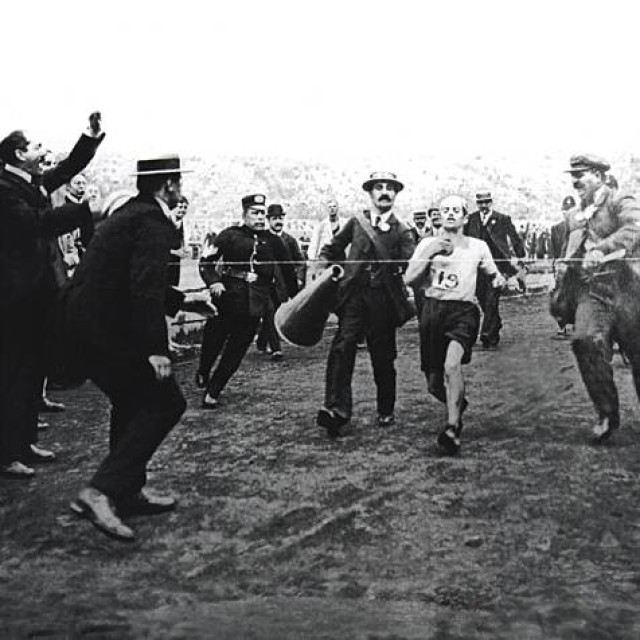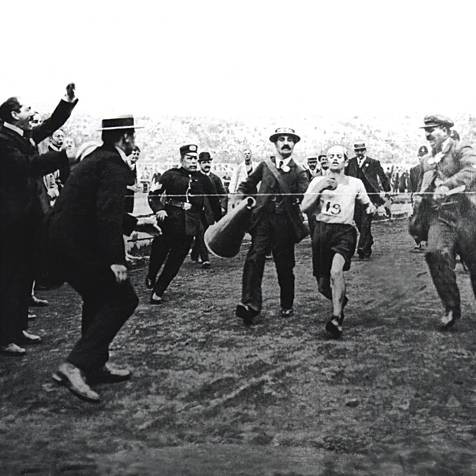WATERVLIET ARSENAL, N.Y. -- "Hayes was the champ, but Pietri was the hero."
Prior to 1908, the Olympic Games were not much more than a side-show. But somehow in 1908, when the Games were suddenly moved from Rome to London due to an erupting volcano, the modern games came into being. Some say it was due to a little known event called the Marathon Race that ignited the excitement and sports talk around the world.
On a hot summer's day in July 1908, many believed that either a Canadian runner, Tom Longboat, or one of the seven United States runners would surely win this race. The runners would race through the streets of London for 26 miles and then enter a stadium for the final 385 yards.
At the 17-mile mark, Longboat fell out of the race and at the 25-mile mark, a little known Italian runner named Dorando Pietri took the lead.
Pietri entered the stadium first for the final 385 yards only to collapse, get to his feet, and collapse three more times.
Finally, two Olympic officials ran to Pietri to assist him across the finish line. Pietri finished in front of American runner Johnny Hayes.
While Pietri was taken away to the hospital, the American Olympic delegation protested. Pietri was stripped of the win and Hayes was announced the winner.
Touched by Pietri's "heart" and inspiration to finish despite his almost dying, the next day United Kingdom's Queen Alexandra presented him with a special gold cup despite his disqualification.
Although Hayes was announced the winner, it was Pietri who captured the emotion and the support of millions of people from around the world. It would be Pietri who people talked about and remembered from the 1908 Marathon race.
The point one should take from this story is not so much on where we finish, but how we conducted ourselves during the race.
In layman terms, every day we face the awesome challenges of production or suspense deadlines. But it is about how we meet those challenges that truly defines who we are and how people outside our organization perceives us.
In our business, reputations matter. As seen by the recent fall of sports, political, and business figures, the fall from prestige and honor can be dramatic, if not quick.
The bottom line is that it is easier to maintain a reputation than to create one. Everything we do, from accounting to machining to resourcing, touches on the Arsenal's reputation as a high quality research, design, and manufacturer of military hardware.
Any chip in the "mettle," at any point, may affect what tens of thousands of Arsenal and BenAfAt workers have achieved for nearly 200 years - an unblemished reputation to provide service to the line, on the line, on time.


Social Sharing